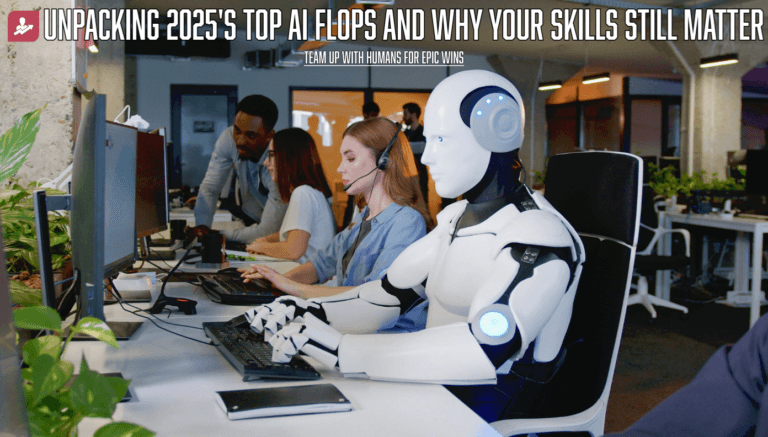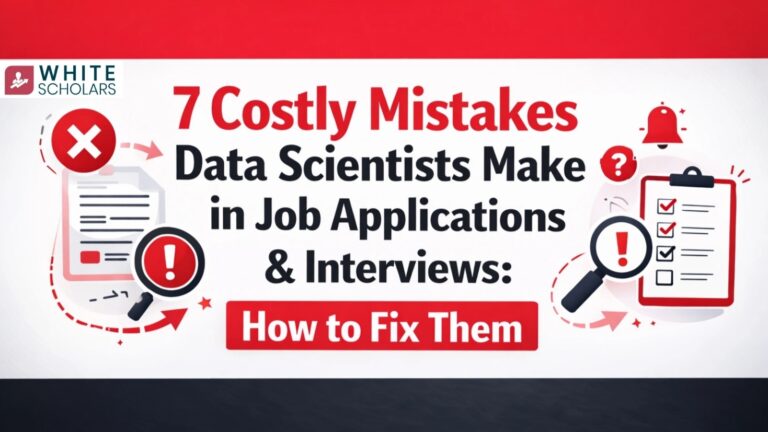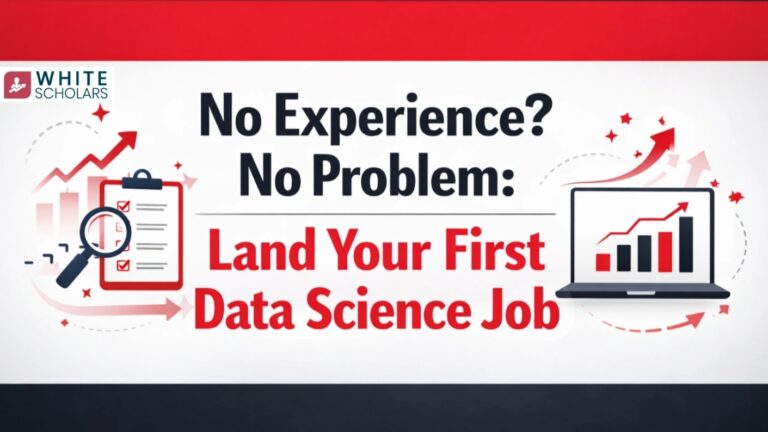- Home
- »
- Data Science

Awarded by Telangana Higher Education as Emerging EdTech of India



 Job - Ready Course
Job - Ready Course
 Job - Ready Course
Job - Ready Course
- Mode: Offline | Online | Live Recorded Sessions
- 180 Hours of learning
- Guaranteed virtual internships with Accenture & PWC
- Certificates from Nasscom and Microsoft
- 7+ Real Time projects & 1 individual projects
- Guaranteed Interview Opportunities
In Collaboration With




Key-Highlights
Hybrid Mode of learning (Online, Offline and access to live recorded sessions)
Guest Lectures with Industry leaders from Microsoft & IIM Faculty
10+ Capstone Projects + 1 Individual end-to-end Project
1:1 Interactions with mentors to track progress
Exclusive batches for beginners
Exclusive Community access
Corporate Readiness Program
Profile & Resume building sessions
Accreditations and Certification
Why Choose WhiteScholars for Data Science Training in Hydrabad?
Work on real projects in our data science course in Hyderabad to apply your skills practically.
Learn from experienced professionals at one of the best data science institutes in Hyderabad.
Join Our Live Demos & Hands-On Workshops in Data Science!
Course Overview
The topics covered in this Data Science program and the modules you will learn are
- Module 1 – Python Fundamentals and Oops Concept.
- Module 2 – Data Handling with Pandas APIs and Web Services.
- Module 3 – Complete Data Visualization and Advanced Data Analysis.
- Module 4 – Advanced Data Handling with Pandas and Web Scraping.
- Module 5 – Statistics with Probability Distributions and Inference.
- Module 6 – Advanced Machine Learning with Supervised / Unsupervised learning.
- Module 7 – Natural Language Processing (NLP) with Model Deployment and Productionization.
- Module 8 – Deep Learning Foundations with Training Techniques.
- Module 9 – Generative AI and Tableau.
- Module 10 – Advanced SQL with Power BI.
- Module 11 – Integration with Other Tools.
- Module 12 – Best Practices and Case Studies.
- Python For Data Science: Enhance skills like Advanced Python Programming and Control Flow, Data Structures, Variables, Data Types, OOPs, Pandas and learn Web Scraping.
- Statistics: To become a great data scientist, you need to master the mathematics and statistics in Probability Distributions.
- MLOps: By the end of this Data Science program, you will you will have hands-on experience in machine learning.
- Generative AI: Generative AI and learn to build models that create text, images, and music and build next-generation AI applications.
- Power BI: You can Master Power BI, Microsoft’s widely used data visualization tool. Learn to create interactive dashboards and management reports.
- SQL: By the end of the course, you will learn to do querying databases and data extraction and manipulation.
- Tableau: The leading data visualization tool that creates interactive dashboards.
Data scientists are in high demand because industries can’t move forward without analyzing the data and extracting its insights. Since the rise of AI and machine learning, everything has been compiled into data. So, without data scientists, industries can’t move forward and make big decisions. That’s why data scientists are important in industries. They ensure that decisions are made properly by ensuring that we get the data and analyze it.
- Data Collection & Cleaning: Gather data from various sources, do the web scraping, and ensure data quality integrity.
- Exploratory Data Analysis (EDA): Understand the data distribution with summary statistics and use visualizations to identify patterns and trends.
- Testing & Validation: Split data into training and test sets and apply statistical and prevent overfitting.
- Model Deployment: Train machine learning models and use APIs, cloud platforms, or local servers.
- Data Visualization & Reporting: Create dashboards with tools like Tableau, Power BI.
- Code Review & Documentation: keep clean, well-commented code Document assumptions and findings.
- Experimentation: Test different models with A/B testing.
Know Your Mentors

Swapnil
Sr. Data Analyst
20 Years Experience

Vishnu Murthy
Sr. Data Scientist
20 Years Experience

Satya Kumar
Sr. Data Scientist
12 Years Experience


Satish
Sr. Data Scientist
5 Years Experience

Program Highlights
Master data science from experts who make the concepts easy and fun to learn
- Learn directly from the Industry experts.
- Interactive and engaging sessions helping you learn the real-world concepts.
- Simplified learning approach to make tough data concepts easy to grasp.
- Hands-on activities to help you apply what you learn instantly.
- Gain firsthand industry insights to make you job-ready.
- Work on 7+ Guided Projects and 1 Individual Project with trainers assistance.

WhiteScholars data science course helps you find real job opportunities through strong industry connections.
- Join a network of 100+ hiring managers from top companies.
- Get regular updates on job openings, interviews, and referrals.
- Build strong industry connections to make yourself visible to the recruiters.
- Stay one step ahead in job search with WhiteScholars.
- Gain Community access of industry recruiters.
- Participate in placement drives by top companies exclusive for WhiteScholars Students.

WhiteScholars data science course is structured in collaboration with senior leading data scientists to match the real-time industry needs.
- Designed with insights from top data science industry experts.
- Focuses more on a practical approach to learning.
- Covers Python, SQL, Machine learning, and Power BI.
- The Data Science course is aligned with the industry needs.
- Work on live projects, weekly assignments, 7+ industry-relevant projects, and individual projects.
- Get job-ready skills that companies actually look for.

Work on real-time projects, case studies, and relevant assignments, with the course making you industry-ready.
-
Developing personalized recommendation systems:
a. Understanding Netflix Recommendation Engine
b. Swiggy’s dish recommendations. - Diagnosing diseases through MRI scan analysis of body organs.
- Creating conversational AI bots to enhance customer interactions and satisfaction.
- Predicting the likelihood of fraudulent insurance claims.
- Classifying product reviews on e-commerce platforms.
- Building AI based Smart Search applications.

Learner's Journery

Curriculum and Modules
- What is programming?
- History of Python.
- Setting up the development environment.
- IDLE.
- Jupyter Notebook.
- VS Code.
- Writing and running your first Python program.
- Comments.
- Indentation.
- Printing to the console.
- Numbers (integers, floats).
- Strings.
- Booleans.
- Numbers (integers, floats).
- Strings.
- Booleans.
- Conditional statements (if, elif, else).
- Loops (for loops, while loops).
- Break, continue, and pass statements.
- Defining and calling functions: Function arguments and return values.
- Scope and lifetime of variables in Lambda functions.
- Creating and accessing lists.
- List operations (indexing, slicing, adding, removing elements).
- List methods.
- append.
- extend.
- insert.
- remove.
- pop.
- clear.
- index.
- count.
- sort.
- Reverse.
- Creating and accessing tuples.
- Tuple methods.
- Creating and accessing sets.
- Set operations.
- union.
- intersection.
- Difference.
- Creating, accessing, and modifying dictionaries: Dictionary methods.
- keys.
- values.
- items.
- get.
- pop.
- update.
- String operations.
- concatenation.
- slicing.
- formatting.
- String methods.
- find.
- replace.
- split.
- join.
- lower.
- upper.
- Strip.
- Reading from files.
- Writing to files.
- Working with CSV files using the csv module.
- Importing modules.
- Standard library overview.
- Math.
- Datetime.
- Random.
- Installing and using third-party packages (pip).
- Understanding exceptions.
- Try, except, else, finally blocks.
- Raising exceptions.
- Classes and objects.
- Attributes and methods.
- Inheritance.
- Polymorphism.
- List comprehensions.
- Dictionary comprehensions.
- Set comprehensions.
- Understanding and using decorators.
- Creating and using generators.
- Introduction to regular expressions.
- Using the re module for pattern matching.
- Introduction to Pandas.
- DataFrames and Series.
- Reading from and writing to different file formats.
- CSV.
- Excel.
- JSON.
- Data cleaning and manipulation.
- Introduction to Matplotlib and Seaborn.
- Plotting graphs and charts.
- Customizing plots.
- Introduction to web scraping.
- Using BeautifulSoup and requests.
- Handling web scraping challenges.
- Pagination.
- Dynamic content.
- Understanding APIs.
- Making HTTP requests using requests.
- Parsing JSON data.
- Introduction to SQL and databases.
- Using SQLite with Python.
- Performing a CRUD operation.
- Understanding concurrency vs. parallelism.
- Using the threading and multiprocessing modules.
- Writing unit tests with unittest and pytest.
- Debugging techniques and tools.
- Abstract classes and interfaces.
- Design patterns.
- Metaclasses.
- Introduction to NumPy for numerical computing.
- SciPy for scientific computing.
- Exploring additional libraries as per interest.
- TensorFlow for machine learning.
- Fundamentals of Data Visualization.
- Importance of data visualization.
- Key principles of effective data visualization.
- Overview of common visualization types.
- Bar charts.
- Line charts.
- Scatter plots.
- Introduction to Tableau and Power BI.
- Introduction to Tableau: installation, interface overview.
- Introduction to Power BI: installation, interface overview.
- Connecting to data sources (Excel, CSV, databases).
- Data cleaning and preparation.
- Understanding Tableau data types and relationships.
- Connecting to data sources (Excel, CSV, databases).
- Data cleaning and preparation.
- Understanding Power BI data types and relationships.
- Creating basic charts (bar, line, pie).
- Customizing charts (colors, labels, tooltips).
- Using filters and sorting data.
- Creating basic charts (bar, line, pie).
- Customizing charts (colors, labels, tooltips).
- Using filters and sorting data.
- Creating advanced charts (heat maps, tree maps, bullet charts).
- Using calculated fields.
- Parameters and input controls.
- Creating advanced charts (heat maps, tree maps, bullet charts), using DAX (Data Analysis Expressions) for calculations, Parameters, and input controls.
- Designing interactive dashboards.
- Adding interactivity with actions (filters, highlights).
- Creating stories for data presentation.
- Designing interactive dashboards.
- Adding interactivity with slicers and filters.
- Creating reports for data presentation.
- Data blending.
- Data joins and unions.
- Handling null values and outliers.
- Data transformation using Power Query.
- Data joins and merges.
- Handling null values and outliers.
Tableau
- Time series analysis.
- Forecasting and trend analysis.
- Cohort analysis.
PowerBI
- Time series analysis.
- Forecasting and trend analysis.
- Cohort analysis.
- Creating maps.
- Spatial joins and distance calculations.
- Advanced map visualizations.
- Creating maps.
- Spatial joins and distance calculations.
- Advanced map visualizations.
- Exporting Tableau visualizations.
- Embedding Tableau in websites and applications.
- Connecting Tableau to R and Python for advanced analytics.
- Exporting Power BI visualizations.
- Embedding Power BI in websites and applications.
- Connecting Power BI to R and Python for advanced analytics.
- Best practices for effective data visualization.
- Design principles.
- Avoiding common pitfalls.
- Case studies and real-world applications.
- Reviewing industry-specific use cases.
- Hands-on case study analysis.
- Descriptive Statistics.
- Measures of central tendency: mean, median, mode.
- Measures of dispersion: range, variance, standard deviation, interquartile range.
- Data Visualization.
- Histograms, bar charts, and pie charts.
- Box plots, scatter plots.
- Probability Basics.
- Probability theory and rules.
- Conditional probability and Bayes’ theorem.
- Probability distributions: discrete and continuous.
- Discrete Distributions.
- Bernoulli.
- Binomial.
- Poisson distributions.
- Continuous Distributions.
- Uniform and Normal (Gaussian).
- Exponential distributions.
- Central Limit Theorem.
- Multivariate Distributions.
- Multinomial distribution.
- Multivariate Normal distribution.
- Sampling and Sampling Distributions.
- Point Estimation and Properties of Estimators.
- Bias.
- Variance.
- Mean Squared Error (MSE).
- Interval Estimation.
- Confidence intervals for means and proportions.
- Hypothesis Testing.
- Null and alternative hypotheses.
- Type I and Type II errors.
- p-values and significance levels.
- t-tests.
- chi-square tests.
- ANOVA.
- Bayesian vs Frequentist methods.
- Prior, likelihood, and posterior distributions.
- Bayesian inference and applications.
- Overview and history of machine learning.
- Types of machine learning: supervised, unsupervised, reinforcement learning.
- Key terminology.
- Features.
- Labels.
- Training set.
- Test set.
- Validation set.
- Data cleaning.
- Handling missing values.
- Outliers.
- Feature scaling.
- Normalization.
- Standardization.
- Encoding categorical variables.
- One-hot encoding.
- Label encoding.
- Feature engineering and selection techniques.
- Linear Models.
- Linear regression.
- Logistic regression.
- Decision Trees.
- Construction and interpretation of decision trees.
- Pruning techniques to avoid overfitting.
- Ensemble Methods.
- Bagging (Bootstrap Aggregating).
- Random Forests.
- Boosting (AdaBoost, Gradient Boosting).
- Support Vector Machines (SVM).
- Concept of hyperplane and support vectors.
- Kernel tricks: linear, polynomial, radial basis function (RBF), K-Nearest Neighbors (KNN).
- Distance metrics: Euclidean, Manhattan.
- Choosing the value of K.
- Gradient Boosting Machines (GBMs).
- XGBoost.
- LightGBM.
- CatBoost.
- Advanced SVM techniques.
- Advanced kernel techniques.
- Support Vector Regression (SVR).
- Clustering.
- K-means clustering.
- Hierarchical clustering: agglomerative and divisive.
- DBSCAN (Density-Based Spatial Clustering of Applications with Noise).
- Dimensionality Reduction.
- Principal Component Analysis (PCA).
- t-Distributed Stochastic Neighbor Embedding (t-SNE).
- Linear Discriminant Analysis (LDA).
- Association Rule Learning.
- Apriori algorithm.
- Train-test split.
- Cross-validation.
- k-fold.
- Stratified k-fold.
- Evaluation metrics for regression.
- Mean Squared Error (MSE).
- Root Mean Squared Error (RMSE).
- Mean Absolute Error (MAE).
- R².
- Evaluation metrics for classification.
- Accuracy.
- Precision.
- Recall.
- F1 score.
- ROC-AUC.
- Perceptron and multi-layer perceptron.
- Activation functions.
- Sigmoid.
- Tanh.
- ReLU.
- Backpropagation and gradient descent.
- Definition and examples of time series data.
- Components of time series.
- Trend.
- Seasonality.
- Cyclic patterns.
- Irregular components.
- Time series vs. cross-sectional data.
- Plotting time series data.
- Moving averages and smoothing techniques.
- Seasonal decomposition of time series.
- STL (Seasonal and Trend decomposition using Loess).
- Definition of stationarity.
- Augmented Dickey-Fuller (ADF) test for stationarity.
- Differencing to achieve stationarity.
- Seasonality adjustment.
- Autocorrelation Function (ACF).
- Partial Autocorrelation Function (PACF).
- Identifying patterns using ACF and PACF plots.
- Autoregressive (AR) models.
- AR(p) process and Yule-Walker equations.
- Moving Average (MA) models.
- MA(q) process and invertibility.
- Autoregressive Moving Average (ARMA) models.
- ARMA(p,q) process and parameter estimation.
- Autoregressive Integrated Moving Average (ARIMA) models.
- ARIMA(p,d,q) process and model selection.
- Seasonal ARIMA (SARIMA) models.
- Splitting time series data.
- Training and testing sets.
- Walk-forward validation.
- Forecasting accuracy metrics.
- Mean Absolute Error (MAE).
- Mean Squared Error (MSE).
- Root Mean Squared Error (RMSE).
- Mean Absolute Percentage Error (MAPE).
- Convolutional Neural Networks (CNNs).
- Convolution and pooling layers.
- Famous architectures: LeNet, AlexNet, VGG, ResNet.
- Recurrent Neural Networks (RNNs).
- Vanishing gradient problem.
- Long Short-Term Memory (LSTM) and Gated Recurrent Unit (GRU).
- Text Preprocessing.
- Tokenization.
- Stemming.
- Lemmatization.
- Stopwords removal.
- Word Embeddings.
- Word2Vec.
- GloVe.
- Sequence Models.
- RNNs.
- LSTMs.
- GRUs.
- Transformers.
- Attention mechanism.
- BERT.
- GPT models.
- Model serving and APIs
- Containerization with Docker
- Model monitoring and management
- Scaling machine learning models in production
- Overview of deep learning and neural networks.
- Key concepts.
- Neurons.
- Layers.
- Activation functions.
- Loss functions.
- Introduction to deep learning frameworks.
- TensorFlow.
- PyTorch.
- Gradient descent and variants.
- SGD.
- Adam.
- RMSprop.
- Learning rate schedules and techniques to avoid overfitting.
- Dropout.
- Regularization.
- Batch normalization and its impact on training.
- Convolutional Neural Networks (CNNs).
- Review of CNNs.
- Advanced CNN architectures (ResNet, DenseNet, EfficientNet).
- Techniques to improve CNN performance.
- Data augmentation.
- Transfer learning.
- Recurrent Neural Networks (RNNs) and Long Short-Term Memory (LSTM).
- Overview of RNNs and LSTMs.
- Advanced architectures: GRU, Bidirectional RNNs, and Attention mechanisms.
- Applications of RNNs in time series and sequence modeling.
- Introduction to Attention Mechanisms.
- The need for attention in deep learning.
- Types of attention mechanisms.
- self-attention.
- cross-attention.
- Applications of attention in various domains.
- Transformers: Theory and Architecture.
- The transformer architecture.
- encoder.
- decoder.
- multi-head attention.
- Positional encoding and its importance.
- Understanding the transformer model through the “Attention is All You Need” paper.
360 Degree Career Assistance
Get resume tips and upgrade it to make it more professional and impressive, so it stands out to recruiters correctly. Get guidance to build a strong portfolio that shows skills, real-time projects, and achievements in a professional way. Learn how to highlight strengths and tailor resumes for different roles. Structure your portfolio to reflect technical expertise and problem-solving abilities. Present your journey, growth, and real-time experience with confidence and clarity. Stand out to recruiters with a powerful resume and portfolio that showcase skills, projects, and potential.
- 20+ sample resumes.
- Github profile building.
- Project portfolio creation.
- Get tips to make ATS friendly resume.
- Exclusive resume guidance classes by the placement coordinator.
- Customised Resume as per the Job description and company profile.
- One-on-one resume Feedback and Suggestion tips to avoid common resume mistakes.

Get help to optimize your LinkedIn profile and make it look more professional and impressive to grab recruiters attention, boosting visibility, helping more people to connect, and growing professional network. WhiteScholars guides on how to write a strong headline, craft a clear summary, and highlight your skills, projects, and achievements in the right way. An optimized linkedin profile can open doors for your career. Make your LinkedIn profile work for you and get noticed by the right people.
- Get tips to optimize Linkedin.
- Learn how to build more connection and professional network with HRs.
- Explore and understand the best practices for writing impactful LinkedIn headlines and summaries that catch the recruiter's attention.
- Learn certificate and project updation in the featured section.
- Learn how to find company HR’s contact information.
WhiteScholars offers exclusive programs to step into the corporate world with confidence. The CRP modules are designed to help and guide you to improve your verbal communication skills to present your idea, confidently and professionally. Through interactive sessions,mock interviews and group discussions. Whitescholars focus on enhancing public speaking, presentation skills is essential for building confidence at the work place. In addition to this, the program also covers email etiquettes and professional behaviour preparing you to adept seamlesslesy to the office environment.
- Interactive group discussions and Jam sessions
- Student activities to develop interpersonal skills
- Develop essential soft skills to effective present yourself
- Regular project presentations to improve presentation skills.
- Build strong leadership skills and the potential to work effectively in teams.
- Improve your decision-making abilities through practical and real-world case studies.

Get interview tips and get prepared with mock interview sessions that help you boost confidence. Receive personalized feedback to improve your performance. Our expert mentors create real-time interview scenarios, helping to get comfortable with both technical and HR rounds. Learn how to handle difficult questions, structure your responses, and make a strong first impression. Our goal is to help you not just crack the interview but stand out.
- Get expert interview tips
- Practice with mock interview sessions
- Experience real time scenarios with technical and HR rounds
- Master your communication skills and build confidence to speak clearly and impress in the interview.
- Receive personalized feedback to improve.
- Learn how to master the STAR (Situtation, Task, Action, Result) technique to structure your answers.
At Whitescholars, our placement methodology is designed to ensure that every student is industry ready and confident to face the real world challenges. Students are made to understand the specific hiring requirements of the companies and trained with our crashed courses as per the job description.
- Understanding hiring requirements of the companies
- Tailored trainings with customised crash course as per JD
- Exclusive one on one Interview preparation
- Go through a skill gap assessment test
- On clearing it, appear for the interviews else get additional training support
- Benefit from continuous mentorship and expert career guidance during your placement journey

Career Transitions

Meghna Velluri
Junior Data Scientist | UST

Revanth
Product Support Engineer | ZETA GLOBAL

Kamal
Software Developer | LTI Mindtree

Abhinay
Product Support Engineer | ZETA Global

Jennifer
Junior Data Analyst | Tech Aspiron
Our Alumni Works Here
Calender - On Campus Classes
Lorem
Date
Regular Classes
Weekdays & Weekend
Want to know about upcoming cohort dates?
Fee Structures of Online and Offline
Instructor Led Training
Mode of training: Online
- Online classes: weekdays
- Access to online class recordings for 365 days
- No cost EMI facility
- Informative sessions from Industry Experts
- Project presentations to guest faculties
- Interview support services
- Guranteed Interview opportunities
Next Batch: 19th Mar 2026
INR 89,999
INR 69,999
Physical Classroom Session
Mode of training: Classroom
- Only 20 students in one classroom
- No cost EMI facility
- Lifetime access to live recorded sessions
- Informative sessions from Industry experts
- Project presentations to guest faculties
- 360 degree career assistance
- Guranteed Interview opportunities
Next Batch: 19th Mar 2026
INR 94,999
INR 74,999
Hybrid Classes
Mode of training: Online + Offline
- Only 20 students in one classroom
- No cost EMI facility
- Lifetime access to live recorded sessions
- Informative sessions from Industry experts
- Project presentations to guest faculties
- 360 degree career assistance
- Guranteed Interview opportunities
Next Batch: 19th Mar 2026
INR 94,999
INR 74,999

Freshers/Begginers
Just starting your career? Our data science course in Hyderabad is perfect for graduates from any field who want to step into data science and AI. No coding experience required.

Data Enthusiasts
If you love working with numbers, spotting patterns, and making decisions based on data, this data scientist training in Hyderabad will help you sharpen your skills and take them to the next level.

Working Professionals
Looking to enhance your career? Learn practical tools and techniques to make smarter, data-driven decisions at work through our best data science course in Hyderabad with placement support.

Tech Enthusiasts
If you enjoy technology and want to explore AI, machine learning, and advanced analytics, this data scientist course Hyderabad is designed to give you hands-on experience with the latest tools.

Career Transitioners
Stuck in a job with limited growth? Upskill with our top data science training in Hyderabad and transition into a high-demand career in data science and AI.
Why WhiteScholars is the Best Data Science Training Institute in Hyderabad?
- Affordable data science course fees in Hyderabad
- Recognized data science certification with placement
- Includes AI course with certification
- Covers complete data science syllabus (India standards)
- Options for online, offline, hybrid mode and weekend data science course in Hyderabad
- Special batches for beginners and freshers
- Available in online and offline (classroom) modes
- Focused on job-ready skills with live projects
- Guaranteed internship projects
- 100% placement assistance till you get placed.










“Listen to expert on why projects are important to crack interview for Data Science roles”
Salary & Role Trends of Data Scientists
Explore average salaries, job roles, and top hiring companies in the Data Science field.
Designation
Annual Salary
Source: Glassdoor
Companies Who HireData Scientist Sutdents




What is the scope of Certified Data Scientists in India
- High demand across Industries: With the rise in the digital transformation across industries from healthcare, ecommerce, IT,edtech , finance and logistics are actively on the look out for people who are good with data science. Whether you are a fresher, tech enthusiast, career transitioner, completing a data science course for beginners can help you entering this field.
- Job Opportunities in various Industries: A certified data scientist is not only in demand in the Tech industries but also in Banking, Finance, Edtech, Logistics, healthcare, retail, ecommerce and manufacturing and supply chain management. You can prepare yourself for roles like data analyst, machine learning engineer, business analyst, data scientist, data engineer, and AI engineer more.
- Better salary packages: Certified data scientists are among the highest paid professionals in the tech industry. According to the recent research , a fresher can earn upto 4-8 LPA and experienced can earn upto 15LPA depending on the skill and location.
- Career Growth: Data Science field is a long term career path with great potential growth. One can scale upto senior data scientist, AI/ML engineer, Principal data scientist and many related roles.
- Global opportunities: Data Scientists are in demand not only in India but all over the world. Countries like USA, Germany, France, Canada and Australia are actively hiring Data Scientists from India.

Related Articles In Data Science
2025’s Biggest AI Busts: Why Human Skills Win Everytime
Table of Contents This article overview and reports to unpack 2025’s biggest AI busts and why human skills still matter to win. Introduction In 2025, the hype around Artificial Intelligence (AI) has never been bigger. From self-coding systems to AI-powered customer service, companies are racing to automate as much as possible. But behind the headlines, […]
7 Costly Data Scientist Job Mistakes (And How to Fix Them)
Table of Contents Struggling to crack data science interviews? Discover 7 common job application mistakes data scientists make and learn simple ways to fix them. Introduction The data science job market is crowded. Employers and recruiters sometimes ghost you just when you thought you’d start your journey. Fighting your competition, recruiters, and employers is not […]
No Experience? No Problem: Land Your First Data Science Job
Table of Contents Discover how freshers can break into data science without prior experience by outshining competitors and secure your first roles in booming sectors. Can You Get a Data Science Job Without Experience? In today’s fast-paced digital world, data science stands out as one of the most transformative and in-demand fields. It empowers organizations […]
Get Certified

Get certification after completion
of your course
Get certification after completion of your course

Get certification after completion
of your internship with us

WhiteScholars Academy – Data Analytics, Data Science Course Training Hyderabad, Digital Marketing

Aneesh Chowdary Singu

I am pursuing data science course at White Scholars Academy, and I was thoroughly impressed with the content and delivery.The trainers are industry experts .. with real-world experience, and they provide us with the latest strategies and tools used in data science today. I especially appreciated the practical assignments, which allowed me to apply what I learned in real time. The course is perfect for anyone looking to build a solid foundation in data science. Highly recommended for beginners and mid-level professionals alike!
View Review
Madaram Ajay

After B.Tech, I was unsure about my career path until I joined White Scholars. Their Data Science course gave me the clarity, skills, and confidence I needed. The course is well structured and gives hands-on experience with live projects. This course is best designed as a data science beginner’s course. I highly recommend it for those who are looking to join the IT sector!
View Review
Sulam Sai

The data science course at Whitescholars Academy was fantastic! The syllabus was well organized and covered key topics like Python, data visualization and .. machine learning. The instructors were knowledgeable and always helpful. Practical assignments made the learning experience hands-on and engaging. A perfect course for beginners in data science.
View Review
Mithun Aeruwadi

Choosing WhiteScholars' Data Science course was one of the best investments I've made in my career. The budget-friendly cost made it accessible, and comprehensive .
View Review
Avinash Sudagoni

The data science course here at Whitescholars Academy is very informative. Trainers are helpful and guided me with live projects. It's a mix of theory.. and real-world projects, which has given me great experience. A great start for anyone looking to enter data science!
View Review
Venkat yash

I want to share my experience. I enrolled in a Data Science course at White Scholars Academy. The curriculum is well-structured and and the trainer was experienced.
View ReviewWe've got answers
Frequently asked questions
Quick answers to questions you may have. Make an informed decision before embarking on your learning journey.
Data Science is an interdisciplinary field that uses scientific methods, processes, algorithms, and systems to extract knowledge and insights from structured and unstructured data.
The duration of a Data Science course can vary depending on the intensity and curriculum. Typically, it ranges from 3 to 6 months.
Data Science courses are offered in both online and offline formats. You can choose the mode that best suits your learning style and schedule.
Upon successful completion of the course, you will receive a recognized certification in Data Science.
A Data Science course covers a wide range of topics, including statistical analysis, machine learning, data mining, data visualization, and big data technologies.
You will gain hands-on experience in data cleaning, data preprocessing, data analysis, model building, and model deployment.
Yes, the course includes practical exercises, lab sessions, and real-world projects to enhance your learning.
We maintain a low student-to-instructor ratio to ensure personalized attention and support. In Batch 15-20 Students for Data Science & Gen AI Course.
At WhiteScholars Kukatpally,Hyderabad, students typically receive multiple interview opportunities based upon completing the Data Science course and their assignments score, attendance status,real-time projects, and provides strong placement support system for the students.
Real-Time Projects
- WhiteScholars: Provides Hands-on practice with real-time projects, case studies & industry problems.
- Others: Mostly theoretical knowledge with limited practical exposure.
Instructor-Led Mentorship - WhiteScholars: Data Scientists as Trainers are industry professionals with real-world experience.
- Others: They often rely on academic faculty members with limited industry exposure.
Placement Support
- WhiteScholars: Offers 100% placement assistance, mock interviews, resume-building sessions, CRP Sessions & 1:1 mentorship.
- Others: Job referrals or passive support.
- Student Performance-Based Interview Opportunities
- WhiteScholars: Students get multiple interview opportunities based on their student performance & project completion.
- Others: May not track student performance or offer limited referrals.
Beginner-Friendly Curriculum - WhiteScholars: Tailored for non-programmers and freshers or beginners starting from basics.
- Others: Often skip basic fundamentals
Career-Focused
- Regular assignments, weekly once hackathons or workshops, and career counseling sessions
- Continuous skill assessments & feedback reviews to the students
Python Core and Advanced Module Topics in the Data Science Course
The Python module in a data science course is packed with essential topics that are crucial for both beginners and advanced learners. Here’s a detailed breakdown:
Core Concepts
- Variables and Data Types
- Understand different data types including integers, floats, and booleans.
- Learn how to define and manipulate variables effectively.
- Strings
- Techniques for string manipulation and formatting.
- Methods to handle string operations efficiently.
Data Structures
- Lists: Create and manage ordered, changeable data.
- Sets: Handle collections of unique elements.
- Tuples: Work with fixed collections.
- Dictionaries: Manage data using key-value pairs.
Control Flow
- Conditional Statements: Master if-else logic for decision making.
- Loops: Efficiently iterate over sequences.
Functions and Modularity
- Functions: Create reusable blocks of code with parameters and return values.
- Modules: Learn to import and use Python modules effectively.
File Handling
- Read from and write to files.
- Manage file operations like opening, closing, and searching content.
Object-Oriented Programming
- Classes and Objects: Model real-world entities using custom classes and OOP principles.
This structured approach ensures you grasp both foundational and intricate aspects of Python for data science, making you well-equipped to tackle real-world challenges.
Embarking on an advanced data science journey with Python is both exciting and comprehensive. Here’s a detailed look at the curriculum components you can expect to explore:
1. Python Fundamentals and Advanced Topics
The foundation begins with mastering Python’s core concepts, including:
- Variables and Data Types: Understanding how Python handles different types of data.
- Data Structures: Working with lists, sets, tuples, and dictionaries to manage data efficiently.
- Control Flow: Utilizing conditional statements, loops, and functions to create dynamic programs.
- Object-Oriented Programming: Grasping classes and objects to structure software code innovatively.
2. Data Analysis and Visualization
Data analysis skills are honed using powerful libraries:
- Numerical Computing with NumPy: Performing complex mathematical operations.
- Pandas for Data Manipulation: Streamlining the organization and transformation of data.
- Matplotlib: Creating comprehensive visual stories through graphs and charts.
- Exploratory Data Analysis (EDA): Diagnosing data sets to summarize their main characteristics.
3. Handling Unstructured Data
Advanced techniques for processing unstructured data include:
- Regular Expressions: Mastery in searching and manipulating text efficiently.
- Web Scraping Projects: Collecting and analyzing data from web pages for insights.
4. Statistics and Probability
Statistics form the bedrock for data interpretation:
- Descriptive and Inferential Statistics: Summarizing data and making predictions about populations.
- Probability Distributions: Understanding different statistical distributions relevant for data modelling.
5. SQL and Data Reporting with Tools
Database proficiency and reporting are crucial:
- SQL Basics to Advanced Concepts: Crafting queries for data extraction and manipulation.
- Power BI for Visualization: Transforming raw data into insightful dashboards.
- Data Analysis Expressions (DAX): Utilizing functions for advanced analytics.
6. Machine Learning
The heart of the curriculum delves into machine learning techniques:
- Supervised Learning: Includes methods like Linear Regression, Naive Bayes, Decision Trees, and more.
- Unsupervised Learning: Focuses on Clustering methods such as K-Means and Hierarchical Clustering.
- Model Evaluation: Techniques to assess the performance of various learning algorithms.
7. Deep Learning and Neural Networks
Explore the nuances of artificial intelligence with:
- Neural Network Foundations: Structure and training of neural networks.
- Deep Learning Frameworks: Practical applications using libraries such as Keras.
- Image Classification and Preprocessing: Techniques for computer vision via CNNs.
8. Natural Language Processing (NLP)
Harnessing the power of language data:
- Text Preprocessing: Techniques for cleaning and preparing text data.
- Vectorization and NLP Libraries: Utilizing libraries like NLTK and spaCy for text analysis.
- Advanced Projects: Implementing solutions like Text Classification and Sequence Tagging.
9. Generative AI
Innovative computing is encouraged through:
- Introduction to Generative AI: Understanding concepts like language models and transformers.
- Prompt Engineering: Crafting prompts for AI models to generate sophisticated outputs.
This curriculum provides a robust framework for anyone seeking to excel in data science, leveraging the versatility and power of Python to unlock the potential of data-driven solutions.
In today’s data-driven world, the demand for skilled data professionals is booming, and India is no exception. Businesses across various sectors are keen to harness the power of data for strategic decision-making and operational efficiency. With the right certification in data science, you can unlock a wealth of career opportunities in this dynamic field.
Thriving Roles for Data Scientists
- Data Scientist: Often the centerpiece of a data team, data scientists dive deep into vast datasets to extract meaningful insights. They design algorithms and build predictive models that can propel business strategies forward.
- Data Analyst: With a focus on interpreting data, data analysts transform numbers into narratives that inform business decisions. They are adept at identifying trends and patterns through statistical analysis.
- Research Analyst: In sectors like finance and market research, research analysts delve into data to forecast trends and evaluate strategies. Their insights drive critical business decisions.
- Big Data Specialist: As organizations handle larger volumes of data, specialists in big data architecture and technologies like Hadoop and Spark become invaluable. They ensure that data pipelines are robust and efficient.
- Business Analyst Consultant/Manager: Bridging the gap between IT and business, these professionals use data to recommend changes that enhance processes, boost efficiency, and improve profits.
- Machine Learning Engineer: With the rise of AI, machine learning engineers create algorithms that automate data analysis, helping businesses predict consumer behavior and optimize operations.
Why Choose a Career in Data Science?
- High Demand: The demand for data science professionals exceeds supply, ensuring ample job opportunities across sectors like healthcare, finance, and e-commerce.
- Competitive Salaries: Skilled data scientists are among the top earners in the tech industry, with salaries reflecting the critical nature of their work.
- Career Growth: As data technology evolves, continuous learning in this field can lead to new and exciting roles, keeping your career trajectory upward.
In conclusion, certified data scientists in India are poised to excel in a landscape rich with opportunity. With the right expertise, you can carve out a successful career path in various high-impact roles that are vital across industries.
Generative AI represents a revolutionary advancement in data science, with its capabilities transforming how we understand and utilize data. Here’s why it’s crucial to any modern data science curriculum:
1. Understanding Generative AI and Language Models
Generative AI allows us to create new content, including text, images, and even music, without direct human input. This technology relies heavily on advanced language models, which are pivotal for processing and generating human-like text. As a data scientist, grasping these concepts is essential for leveraging AI to its fullest potential.
2. Mastering Prompt Engineering
Prompt engineering is a key skill when working with large language models (LLMs). It involves crafting input prompts that guide these models to deliver the desired output. This skill empowers data scientists to interact efficiently with AI models, enhancing both productivity and creativity.
3. Diverse Applications of Popular AI Models
Familiarity with popular AI models, such as:
- OpenAI: Recognized for its state-of-the-art models like ChatGPT and DALL-E.
- Gemini: A lesser-known yet impactful tool with unique capabilities.
- LLaMA: Provides capabilities for generating and fine-tuning models on specific datasets.
- LangChain: Facilitates the integration and chaining of language model functionalities to create complex applications.
These tools form the backbone of modern AI applications, making them indispensable in data science coursework.
4. Adopting AI Tools for Real-World Success
Real-world applications of generative AI extend across industries—enhancing customer service with AI-driven chatbots, automating content creation for digital marketing, and revolutionizing personalized user experiences. Data scientists need to be proficient in using these tools to drive innovation and efficiency within their organizations.
Incorporating generative AI into data science education equips students with cutting-edge knowledge and practical skills, preparing them for the next wave of technological advancements. Through learning how to harness these powerful tools, aspiring data scientists can lead the charge in the AI-driven future.
Unraveling the Fundamentals of SQL and Its Role in Data Science
Understanding SQL: The Foundation of Data Management
Structured Query Language (SQL) stands at the heart of data management and manipulation. It is an essential tool for data scientists due to its robust capability to interact with databases. Here are the basics covered in the fundamentals of SQL:
- Data Querying and Exploration: SQL is primarily used for querying databases to extract valuable insights. Using Data Query Language (DQL) and operators, it allows data scientists to filter and sort data effectively, making complex analysis simpler.
- Basic SQL Operations: Learn how to perform fundamental operations, such as selecting, inserting, updating, and deleting records from a database. These operations are crucial for maintaining and managing data efficiently.
- Database Objects: Get acquainted with SQL database objects like tables, indexes, views, and stored procedures. These components facilitate organized data storage and quick retrieval, aiding in structured data analysis.
Diving Deeper: Advanced SQL Techniques
Advanced Concepts: As you venture further, advanced SQL topics include concepts like joins, subqueries, and aggregate functions. Mastery of these allows for sophisticated data manipulation and in-depth analysis, crucial for data-driven decision-making.
Powering Insights: From SQL to Data Science
In data science, SQL’s role extends beyond mere data retrieval. Here’s how it integrates into the field:
- Data Importation and Visualization: SQL helps in importing data which can then be visualized through tools like Power BI, enhancing the comprehensibility of data trends and patterns.
- ETL Processes: SQL plays a pivotal role in Extract, Transform, Load (ETL) processes, cleansing and preparing data for analysis.
- Analysis and Calculations: With the integration of Data Analysis Expressions (DAX), SQL extends its capability to perform complex calculations, essential for deriving actionable insights from datasets.
- Security and Sharing: Manage data access and share insights securely by implementing row-level security (RLS), ensuring data integrity and confidentiality.
By harnessing the power of SQL, data scientists can effectively manipulate vast amounts of data, paving the way for actionable insights that drive business strategies.
Python Core and Advanced Module Topics in the Data Science Course
The Python module in a data science course is packed with essential topics that are crucial for both beginners and advanced learners. Here’s a detailed breakdown:
Core Concepts
- Variables and Data Types
- Understand different data types including integers, floats, and booleans.
- Learn how to define and manipulate variables effectively.
- Strings
- Techniques for string manipulation and formatting.
- Methods to handle string operations efficiently.
Data Structures
- Lists: Create and manage ordered, changeable data.
- Sets: Handle collections of unique elements.
- Tuples: Work with fixed collections.
- Dictionaries: Manage data using key-value pairs.
Control Flow
- Conditional Statements: Master if-else logic for decision making.
- Loops: Efficiently iterate over sequences.
Functions and Modularity
- Functions: Create reusable blocks of code with parameters and return values.
- Modules: Learn to import and use Python modules effectively.
File Handling
- Read from and write to files.
- Manage file operations like opening, closing, and searching content.
Object-Oriented Programming
- Classes and Objects: Model real-world entities using custom classes and OOP principles.
This structured approach ensures you grasp both foundational and intricate aspects of Python for data science, making you well-equipped to tackle real-world challenges.
Deep Learning Concepts Covered in the Data Science Course
This course provides a comprehensive overview of essential deep learning concepts that are crucial for mastering data science. Here’s a breakdown of what you can expect to learn:
- Foundation of Deep Learning: Dive into the fundamental aspects of deep learning, including understanding how it differs from traditional machine learning techniques.
- Principal Components Analysis (PCA): Discover how PCA is utilized in deep learning to reduce the dimensionality of data, improving model performance and visualization.
- Neural Network Architecture: Gain insights into the design and structure of neural networks, learning about various components such as layers, neurons, and how they are organized to solve complex problems.
- Activation Functions: Explore different activation functions, understanding their role in introducing non-linearity into the model and aiding in the learning process.
- Forward and Backward Propagation: Delve into the mechanisms of forward and backward propagation used in training neural networks, ensuring the model adjusts weights effectively to minimize errors.
- Optimizers: Learn about various optimization algorithms that are employed to enhance model training, focusing on speed and accuracy.
- Hands-on with Keras: Get practical experience using Keras for implementing regression and classification models, equipping you with the skills to build and fine-tune neural networks.
By the end of this module, you’ll have a solid understanding of deep learning principles and be prepared to apply these techniques to real-world data problems.
Key Features of Power BI in Data Science
Power BI is a robust reporting tool that plays a vital role in data science by transforming raw data into meaningful insights. Here’s a closer look at its standout features:
- Data Integration Capabilities: Power BI makes it effortless to import data from various sources. Whether it’s databases, cloud services, or simple Excel sheets, its wide array of connectors ensures you can pull in data without barriers.
- Interactive Data Visualizations: One of Power BI’s strongest features is its ability to create interactive and visually appealing reports. Users can build dashboards with dynamic visual elements like charts, graphs, and maps, allowing for easy data exploration and storytelling.
- User-Friendly Interface: With its intuitive drag-and-drop functionality, Power BI empowers users of all skill levels to create compelling reports. This accessibility lowers the technical barrier, making it a go-to tool for both beginners and seasoned data scientists.
- Powerful Data Analysis Expressions (DAX): DAX is the heart of Power BI’s analytical prowess. It allows users to perform complex calculations and build custom formulas to gain deeper insights into large datasets, all while maintaining performance efficiency.
- Advanced Reporting Features: Power BI offers advanced features like RLS (Row-Level Security) to control access to data at a granular level, ensuring that sensitive information is only visible to authorized users.
- Efficient Data Handling with Power Query: Power Query is integrated into Power BI to handle data preparation. It allows users to clean and transform data efficiently before it is loaded into the final report, simplifying the data wrangling process.
- Real-Time Data Updates: With Power BI, reports can be set to refresh in real-time, ensuring that decision-makers always have the most current information at their fingertips. This is crucial for making timely decisions in fast-paced environments.
- Seamless Collaboration and Sharing: The tool provides options for publishing reports online or embedding them into web pages, facilitating easy collaboration. Users can share insights with team members or clients, enhancing teamwork and transparency in data-driven environments.
Power BI stands out in the data science landscape due to these key features, which not only streamline the reporting process but also enhance the overall effectiveness of data-driven decision-making.
Yes, you will have lifetime access to course materials, including recorded lectures, slides, and practice exercises.
Best Institute Data Science course at WhiteScholars, you will learn Python,Machine Learning, Deep Learning, NLP, AI, SQL, Power BI,Tableau
Yes, Whitescholars Academy has a center in Kukatpally, making it convenient for learners in the area to attend data science courses.
WhiteScholars offers 100% placement assistance after completing the Best Data Science course with Gen AI , including resume and portfilo building, Corporate Readiness Program,Personal Development programs, interview preparation support, and job referrals. WhiteScholars provide strong Placement support and a robust hiring network partners , a formal job guarantee depends on individual performance and market demand conditions.
Yes, at WhiteScholars Kukatpally, Hyderabad, you will receive assignments and test after each classroom session or completion of module to improve your learning experience.
You Can Expect:
- Topic-Wise or Module-Wise Assignments: Practice what you learned in data science class—SQL queries, Python exercises, data visualizations, etc.
- Real-Time Scenarios: Basically, assignments are based on real-time data and are challenges to build practical skills.
- Doubt Clarification Support: Data Scientists as trainers assist with any questions you have while completing the assignments.
Yes, the Best Data Science course at WhiteScholars is beginner-friendly, even if you have no earlier programming experience.
WhiteScholars Data Science Certification Course in Hyderabad is beginner-friendly.
- Starts from Scratch
- Begineer-Friendly Teaching Classes.
- Hands-on real-time projects
- Learner’s Journey
- Career Support Assistance
Data Science is used for discover the patterns, build models and make predications. The techniques used in data science are Machine Learning, Deep Learning, AI, predictive Modeling. Tools covered in the data science course are Python, Numpy, Pandas, Seaborn, R, TensorFlow, and Spark.
Data Analytics is used to analyze historical data to generate actionable insights. The techniques used in data analytics are Data Manipulation, Data visulaization, and Data Mining. Tools covered in the data analytics course are Python, Numpy, Pandas, Excel, SQL, PowerBI, and Tableau.
- Call: Reach out to this number: +91 8500 52 54 56 to book your free demo session directly.
- Visit the Website: Go to www.whitescholars.com and fill out the registration form.
- Walk-In (Offline Option): Visit the WhiteScholars Academy campus at Kukatpally, Hyderabad, for in-person registration and a data science demo class.
- Online Demo: If you’re remote, ask for a live online data science course demo class via Zoom or Google Meet.
- Data Science Course Structure Overview
- Data Scientist Trainer Introduction
- Best Data Science Course Roadmap
- Career Path Guidance in Data Science
- Understand how data science is evolving in various industries
Yes, we provide regular doubt-clearing sessions and online forums for students to interact with instructors and peers.
Yes, WhiteScholars conducts hackathons and workshops to help students to understand and tackle the real-time industry scenarios.These events improves hands-on practice and problem solving skills in Data Science Course.
Data Science professionals are in high demand across various industries. After completing a data science course, you can explore job roles such as Data Scientist, Data Analyst, Machine Learning Engineer, and more.
Benefits
- Python For Data Science: Enhance skills like Advanced Python Programming and Control Flow, Data Structures, Variables, Data Types, OOPs, Pandas, and learn Web Scraping.
- Statistics: To become a great data scientist, you need to master the mathematics and statistics in Probability Distributions.
- MLOps: By the end of this Data Science program, you will you will have hands-on experience in machine learning.
- Generative AI: Generative AI and learn to build models that create text, images, and music and build next-generation AI applications.
- Power BI: You can Master Power BI, Microsoft’s widely used data visualization tool. Learn to create interactive dashboards and management reports.
- SQL: By the end of the course, you will learn to do querying databases and data extraction and manipulation.
- Tableau: The leading data visualization tool that creates interactive dashboards
- Industry-Aligned Curriculum: Learn what companies actually expect tools, techniques, and trends that are up-to-date.
- Job-Ready Skills: Training focuses on real-time problem-solving, data handling, dashboarding, and visualization skills.
- Real-Time Projects: Work on 7+guided projects that help you to face real-world industry challenges.
- Portfolio Building: Showcase your project work to impress recruiters.
- Data Scientists as Trainers: Learn from professionals with real-time industry exposure.
- Personal Guidance: Get one-on-one mentorship to clarify concepts and track your student’s progress.
- Advanced Excel, SQL
- Power BI, Tableau
- Python for Data Analytics
- Machine Learning
- Deep Learning
- Seaborn
- Statistics
- NLP and many more
- 100% Placement Assistance: Interview preparation, resume, and portfolio building, mock interviews, and job referrals.
- Network of Hiring Partners: Partnerships with companies hiring for Data Science and Data Analytics roles.
- Weekday / Weekend Batches: Learn at your convenience.
- Online + Offline Modes: Attend in person at Kukatpally or join virtually.
- Join a growing network of data science and data analytics learners, alumni, and working professionals.
- Networking events in Hyderabad
- Alumni success stories from WhiteScholars
- Online community groups access
- Developing personalized recommendation systems:
- Understanding Netflix Recommendation Engine
- Swiggy’s dish recommendations.
- Diagnosing diseases through MRI scan analysis of body organs.
- Creating conversational AI bots to enhance customer interactions and satisfaction.
- Predicting the likelihood of fraudulent insurance claims.
- Classifying product reviews on e-commerce platforms.
- Building AI based Smart Search applications.
Ready to Start Your Journey?
Don't miss out on the opportunity to transform your career. Join Whitescholars and gain the skills you need to succeed in the tech industry.




